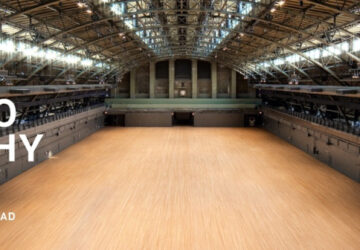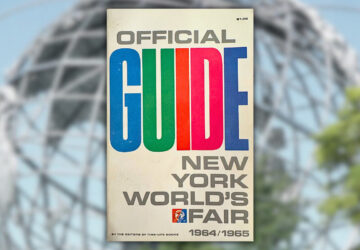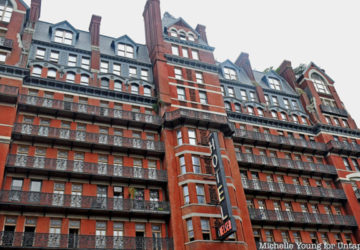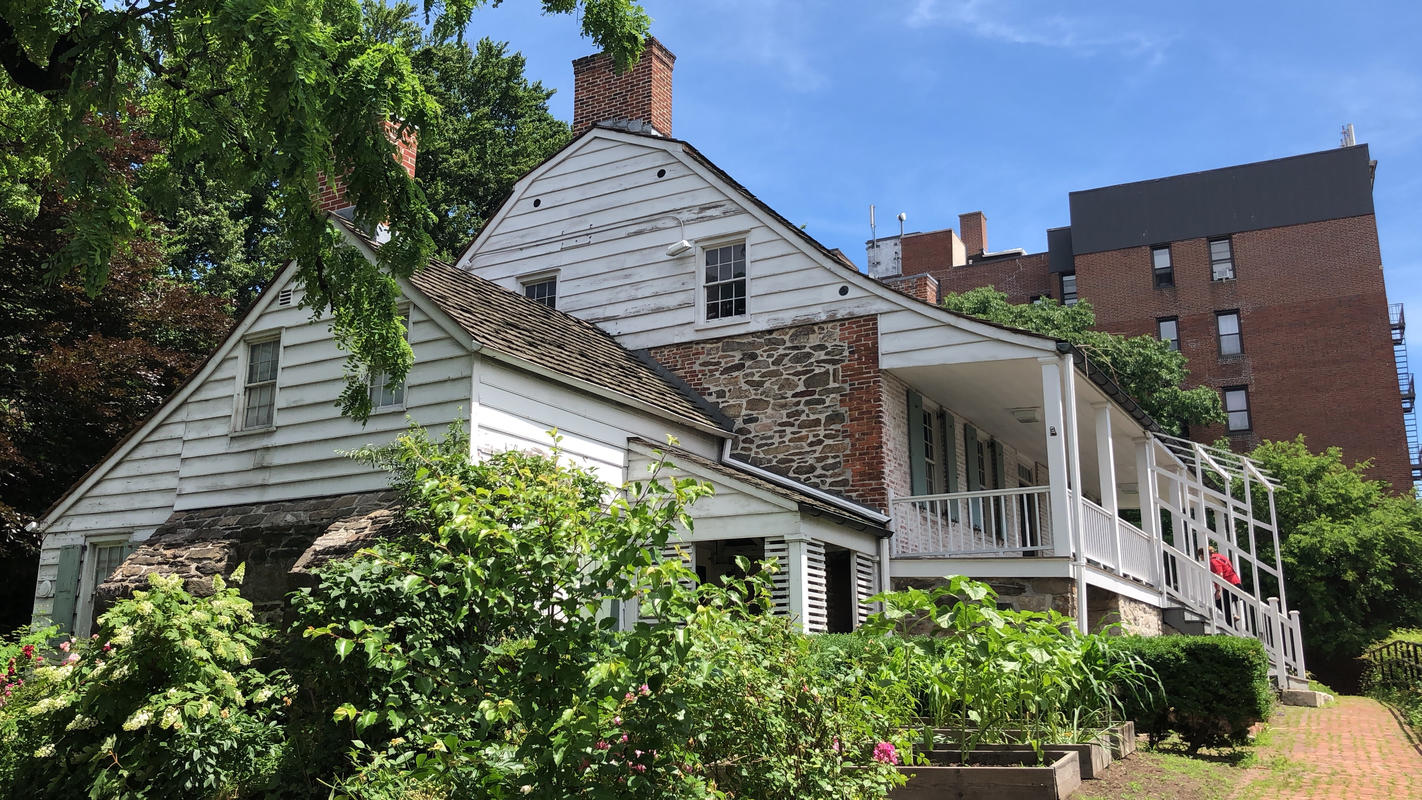The names that go down in history are all too often those of people who had the most power and influence, or the most money, but an innovative art installation at the Dyckman Farmhouse is calling attention to those who history forgot. Ground Revision, a site-specific installation created by artist-in-residence Peter Hoffmeister, fills rooms inside the 18th century farmhouse, one of the oldest homes in Manhattan, with reminders of the people whose stories are often left untold.
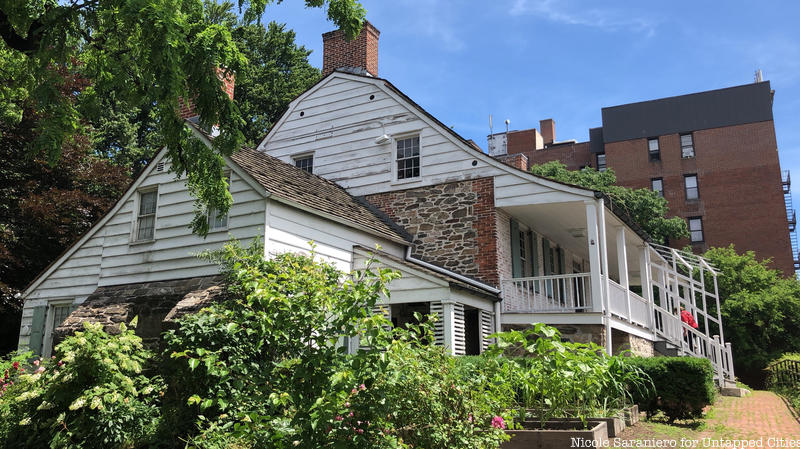
This two-part installation, which will evolve and grow through March 2020, encourages visitors to think about the stories we tell and the stories that get left our of our collective consciousness. While the story of the Dyckmans, the wealthy Dutch family who built the farmhouse, is well documented, there is little to nothing known about the free and enslaved people who worked in their house. The Dyckmans kept few records of their help, which makes it difficult to give them the acknowledgement they deserve today. Hoffmeister’s installation draws inspiration from the Dyckman story and address larger issues of historical imbalance.
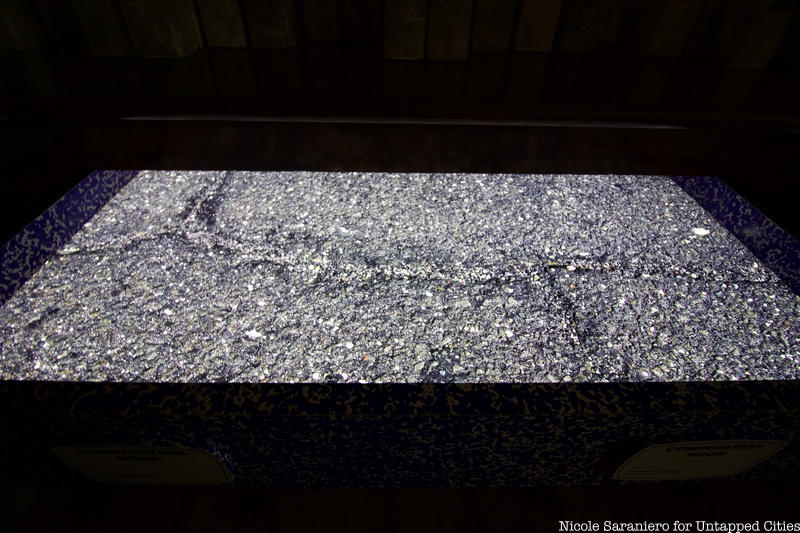
March 31, 1777, one of the parts of the installation, calls attention to the site of an unacknowledged Northern Manhattan burial ground for African slaves. The site was discovered in 1903 when roads were being built for the growing Inwood neighborhood. Remains were disrespectfully excavated, discarded and even stolen as curiosities. The site was paved over and around it there has since been built a parking lot, a school building and an auto repair shop. The installation is made up of a series of drawers that stick out of the furniture throughout the farmhouse. The title refers to the one and only inscription found on any of the thirty-six gravestones found at the original burial site. Inside the drawers, which are wrapped in the design of a classic composition notebook, there are illuminated photographs of the asphalt which now covers the site.
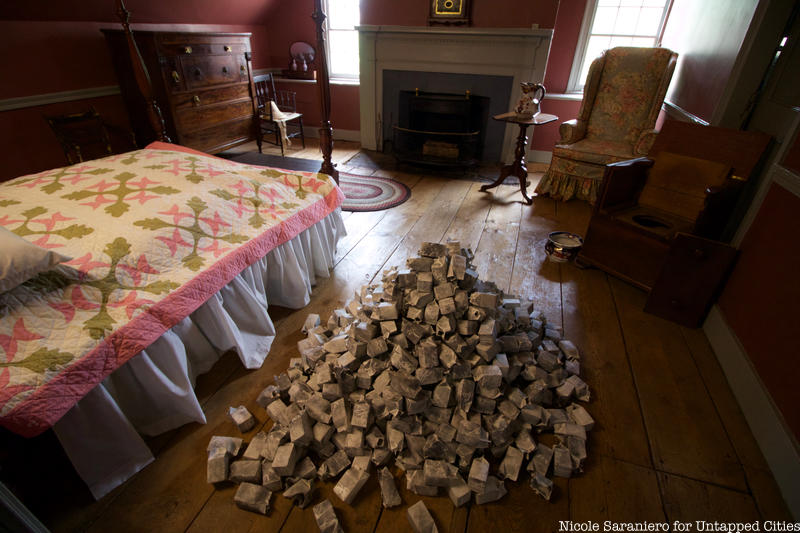
Nutrition Facts is composed or various different arrangements of ceramic milk cartons. Drawing on the decorative trends of the time, Hoffmeister chose to work in ceramic as this is what period era cups and dishes would have been made out of. The milk cartons are emblazoned with cursive writing which quotes Isaac Michael Dyckamn’s own letters from the mid-19th century, where he expressed his racist views and describes current events. Hoffmeister only allows this text to appear in fragments, serving as a gentle reminder of the subtext of racism that commonly runs through much of American history.
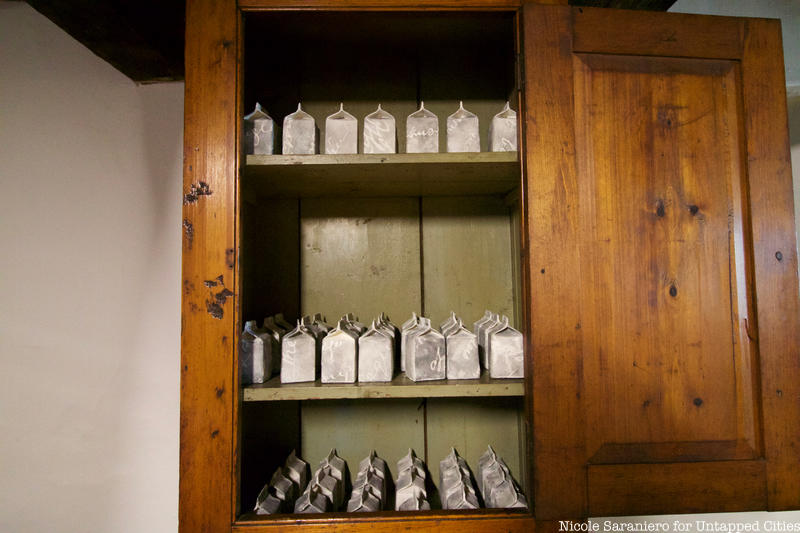
Through a grant from The New York Community Trust, researchers at the Dyckman Farmhouse will conduct more research into the lives of free and enslaved people of Upper Manhattan, further illuminating the stories of those who kept the households and farms of wealthy white landowners running.
Admission to the museum is donation based and they are open Thursday through Saturday from 11:00AM to 4:00PM and Sunday, 11:00AM until 3:00PM. You can join a guided tour of the farmhouse every Saturday at noon.
Next, check out 12 of the Last Remaining Wooden Houses in Manhattan
